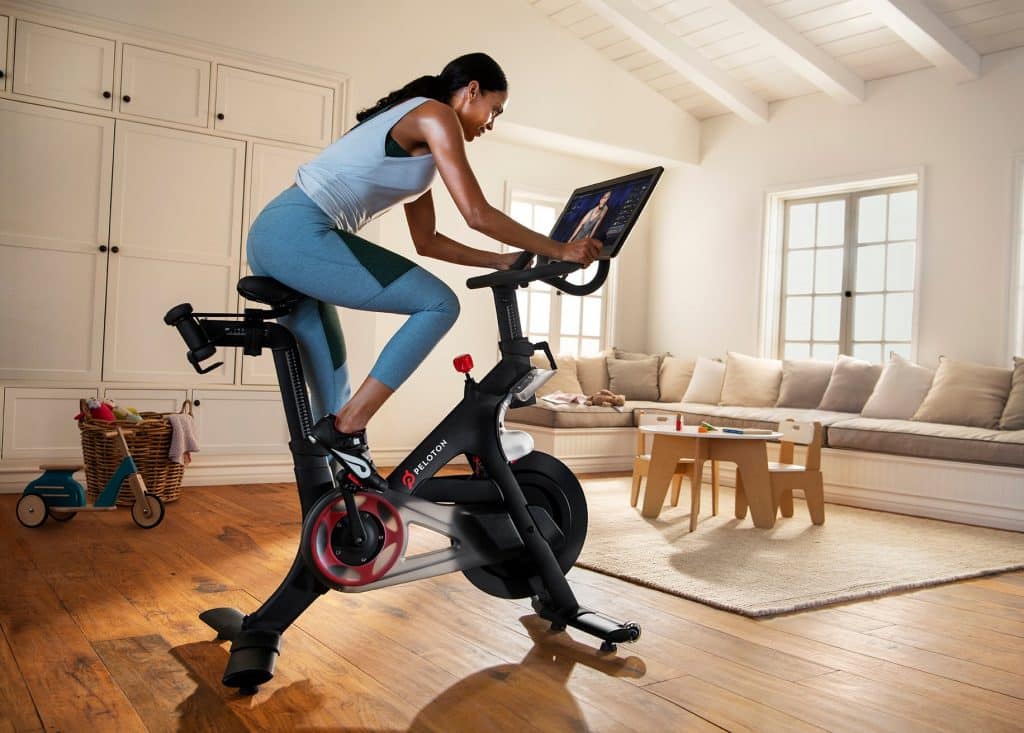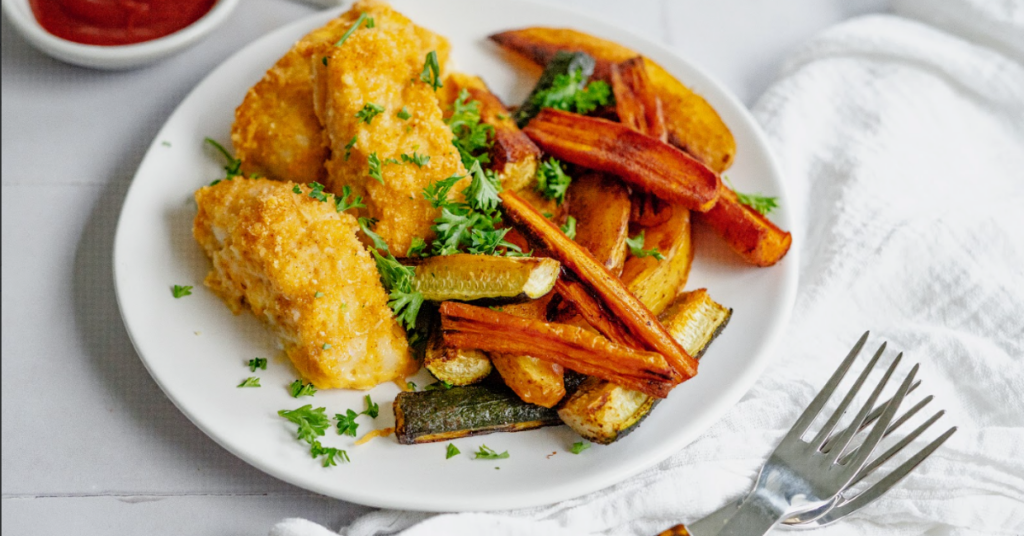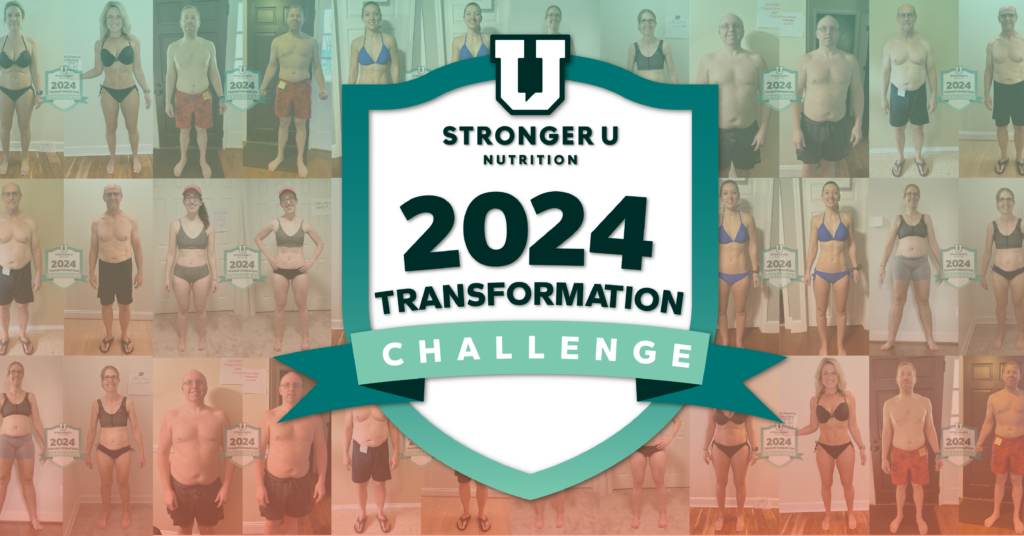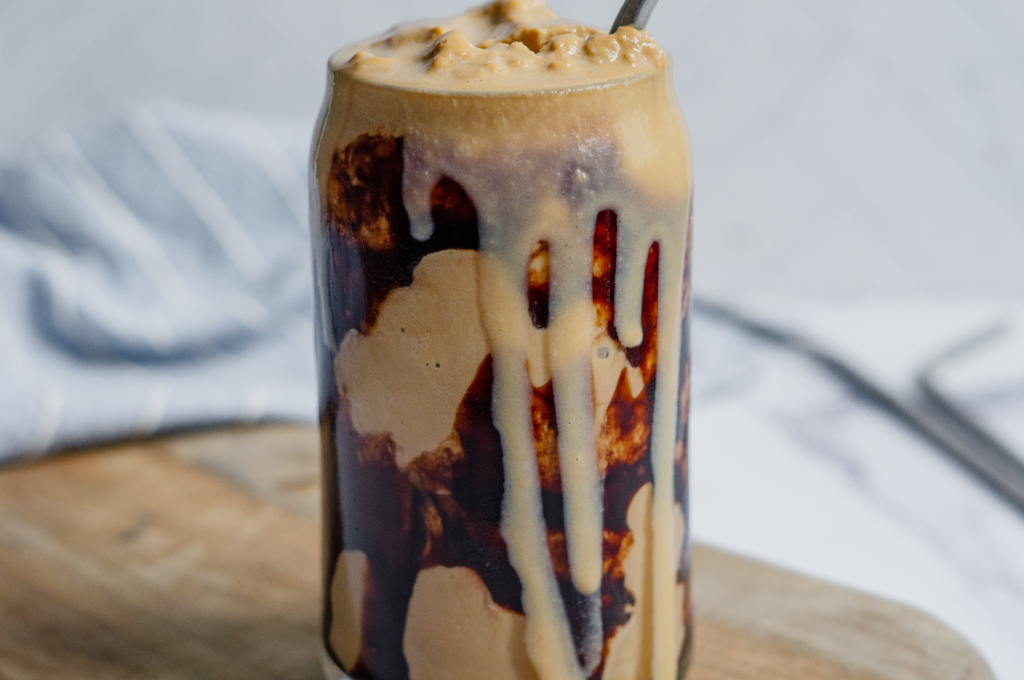It’s time for another installment of the Stronger U Journal Club. Last month, we talked all about menstrual irregularities and weight loss. This month we’re talking about something that all of us have some level of familiarity with because we should focus on it every single day: hydration!
Coach Ariana Scalfo and Dr. Jessica Bachman teamed up to take us coaches through the ins and outs of all things hydration, a topic that goes quite a bit more in-depth than simply just saying “you should probably drink more water!”
This is one of those catch-all topics that everyone can benefit from learning more about, whether you’re an endurance athlete who spends hours training outside in the sun, someone who is a general fitness enthusiast, or you’re just now beginning your health and weight loss journey. There are aspects of hydration that are important for all of us to understand.
First, a few basics around hydration.
When most people think of hydration, they think of how many glasses of water they’re drinking on a daily basis. While this isn’t necessarily wrong, it is an incomplete picture around what hydration actually is and what it means for the human body. It’s more helpful to think of hydration as an aggregate of everything that you’re eating and drinking in a given day, and how much fluid all you keep inside your body. Our total hydration level varies throughout the day, but at any given moment, the average person is anywhere between 50-60% water, and that number will change depending on how much fluid we’re taking in from eating, drinking, and how much fluid we are expelling through things like digestion, sweating, breathing, exercising, and urinating. The percentage of your body that is made up of water varies between people based on many factors, with body composition being one of the most influential.
Not to state the obvious, but hydration and water itself are awfully important for sustaining human life. Water protects the body’s organs like the eyes, the gastrointestinal tract, and the brain. And because the body is super cool, it will even use various little tricks involving water to protect itself. For example, salivary glands can be “turned on” during exercise in dry climates to protect the tissue in the nose and throat, hence the reason why your nose might get runny or your mouth waters when you’re outside in a hot, dry environment.
What about water balance and water intake recommendations?
When talking about water intake recommendations and water balance, there are some basic guidelines that are set in place here in the United States by the Institute of Medicine.
General recommendations for water intake from ALL beverages and food:
- Women: 2.7 liters (91 ounces)
- Men: 3.7 liters (125 ounces)
- Typically 80% comes from beverages; 20% from food
- Prolonged physical activity and heat exposure may increase water loss and increase needs, however, an excess can be problematic too
That last point is an important one. Dehydration can be a severe health issue that can even be fatal. Symptoms of dehydration include:
- Dry mouth
- Dark colored urine/strong smelling urine, decreased output
- Sweating may slow or stop
- Low blood pressure (orthostatic hypotension)
- Muscle cramping
- Nausea and vomiting
- Heart Palpitations
- Weakness
- Fever, confusion
- Death
One of the factors that contribute to dehydration is not only a lack of fluid intake but a loss of fluid. This can be especially common during intense bouts of exercise, especially outside.
Water lost during exercise varies based on individual fitness, body size, and environment:
- The average person sweats between 0.8 liters and 1.4 liters per hour of exercise, or 1-3 pounds of body weight per hour
- Elite athletes can lose even more water per hour, 2-3 liters, with no decrease in performance
- Sweat rate is highly individual and can easily be approximated per hour, for those who are curious, by weighing yourself before an hour of exercise (no fluids are taken in, or excreted) and weighing yourself afterward.
What fewer people know is that over-hydrating, or hyponatremia, can be just as dangerous and presents very similarly to dehydration. Symptoms of hyponatremia include:
- Nausea and vomiting
- Headache
- Confusion
- Loss of energy, drowsiness, and fatigue
- Restlessness and irritability
- Muscle weakness, spasms or cramps
- Seizures
- Coma
- Death
This is why hydration is a bit more nuanced for plenty of people than simply just saying “drink more water” because if that advice is taken to its logical end, someone can wind up in a very dangerous place. Drinking water is undoubtedly important, and we at Stronger U happily encourage you to drink water. However, it’s also important to understand that only drinking more water isn’t painting a complete picture when talking about optimal hydration.
All of that being said, the average person will typically take care of their hydration needs by letting thirst be their guide and paying attention to urine color. If urine is darker and you’re incredibly thirsty, chances are you need to drink some more water. If you’re not very thirsty at all and your urine is transparent, then it’s safe to say that you’re well hydrated at that point in time.
What about electrolytes?
You may have heard about electrolytes at some point or another. So what purpose do they serve? Electrolytes are minerals (sodium, potassium, calcium, and magnesium) in the body that help:
- Balance the amount of water in your body
- Move nutrients into cells
- Move wastes out of cells
- Provide electrical charge to organs
Electrolytes also help us manage blood volume. Blood volume is determined by the amount of water and sodium ingested, excreted by the kidneys into the urine, and lost in the gastrointestinal tract, lungs, and skin. Blood volume is regulated by the kidneys and hormones, water and sodium are kept level. Hypovolemia (low blood volume) can be caused by loss of blood, loss of plasma, loss of body sodium and subsequent intervascular water through vomiting and/or diarrhea.
What was the study we went over?
As a group, we went over a study that was done to establish the Beverage Hydration Index. The purpose of the study was to assess fluid balance responses to various beverages when individuals were already in a normal hydrated state and comparing those beverages to just plain water.
What went on in the study?
72 participants who were healthy and active males, between 18-35, participated in this study in three different locations across the UK. The individuals had no history of cardiovascular, renal, musculoskeletal, or metabolic disease. Additionally, none of the individuals were on an energy-restricted diet or exercise plan.
The individuals fasted overnight (8 hours), drank 500mL of water upon arrival at the lab, and then took urine and blood tests to confirm hydration levels. From there, the individuals consumed 1L of the test beverage over thirty minutes. They were then asked to void their bladder immediately after and then every hour for the next four hours.
Above you’ll see a list of the drink options that were involved in this study. Each participant took part in this protocol four different times with different beverage options, with each participant starting with water, and then one of three of the other options in the list above.
What were the results?
The overall findings were in line with what the researchers predicted in their hypothesis. Fluids with the highest macronutrient and electrolyte content were generally the best at maintaining fluid balance over an extended period of time. There were a couple of interesting points that stood out:
- Differences in cola, lager, and orange juice suggest factors other than energy content play a role
- ORS (oral rehydration solution), milk drinks, and orange juice had the highest sodium and/or potassium levels and the highest levels of total hydration
- Researchers did not see an effect on net hydration from caffeinated or alcoholic beverages
- In small doses, these beverages may have no effect on total hydration. In fact, if you’re taking in under 300mg of caffeine, or around 3-4 cups of coffee, coffee tends to have a hydrating effect!
An easy way to see the breakdown of the results from this study is this excellent graph below from My Sports Science.
The graph show beverages like ORS, skimmed milk, whole milk, and orange juice far outstrip the hydration capability of still water. However, in practice, the difference between these beverages isn’t that great, at least not great enough to warrant you chugging skimmed milk after a 10-mile run.
What should your takeaway be?
First and foremost, hydration is much more than just “drinking more water”. Adequate hydration is of paramount importance for health and wellness, as well as athletic performance. When talking about total body water or total hydration, it is actually a composite of the fluids that we take in from everything that we drink and eat. The state of hydration in the body is constantly in flux, and is impacted by a myriad of factors including but not limited to: exercise, sweat rate, digestion, fluid intake, the foods you’re eating and electrolyte balance.
Along with that, optimal hydration can be highly individualized. For example, if you’re someone who likes to run outside in the hot sun, it can be a valuable thing to try and determine your sweat rate so that you can determine how to properly hydrate in the day and hours leading up to a run, during a run and after a run. Figuring out your sweat rate is a valuable exercise because in doing so, you might learn that you sweat more or less than someone who is the same size and doing the same activity as you, meaning your hydration requirements are different.
Ultimately, if you’re to take anything away from this Journal Club, let it be this — don’t neglect your hydration. Obvious, right? But hydration is vitally important. For the vast majority of us who aren’t exercising for hours upon hours each day, just listening to our body and drinking fluids (mostly water) when we’re thirsty can be enough to help us stay hydrated. But even then, it’s important to pay attention to things like urine color, how we feel throughout the day and during exercise, and recognize that adequate hydration on a daily basis allows us to live our healthiest lives.









